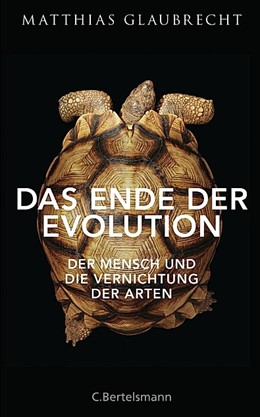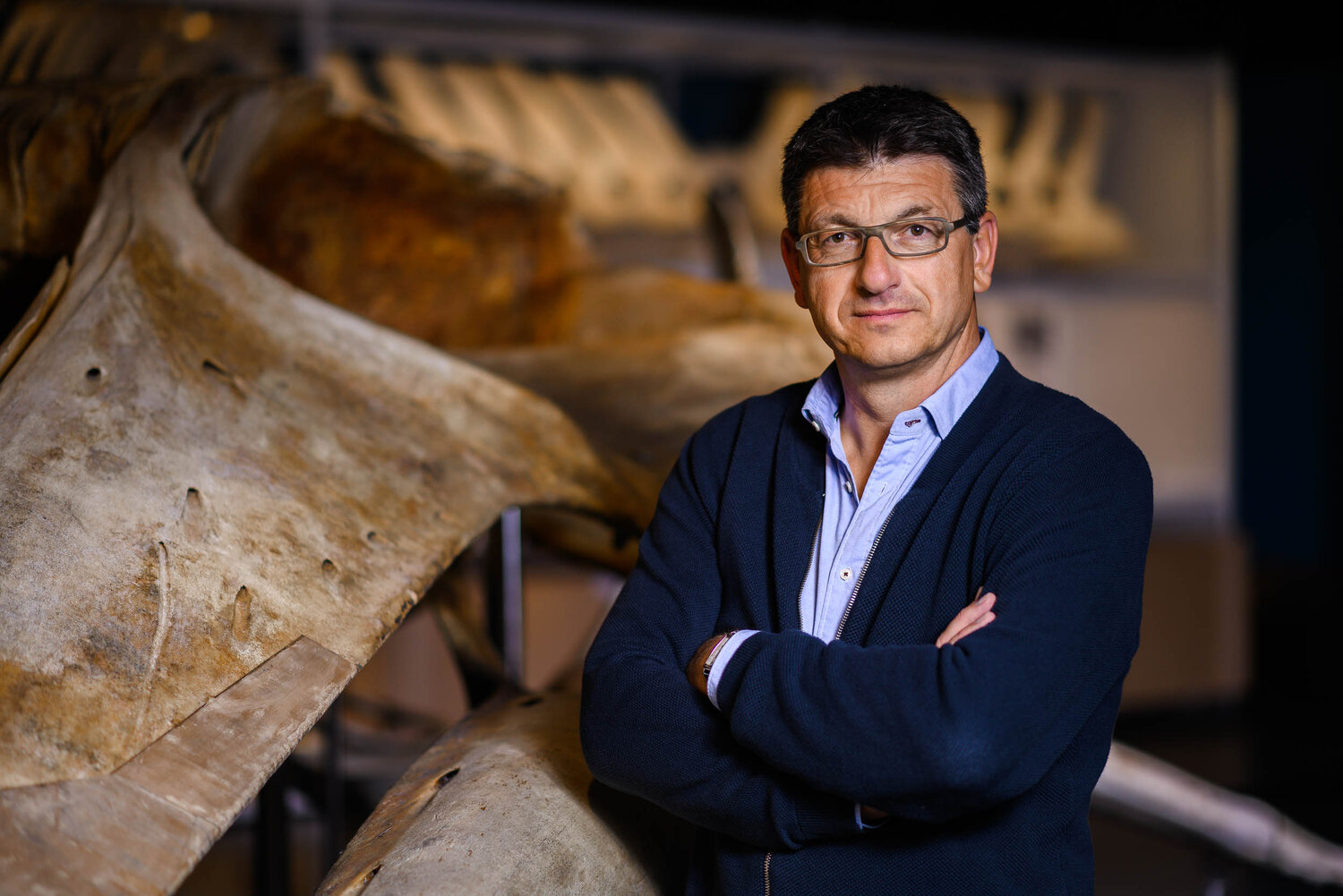Three questions for...
Berlin’s zoos welcome the fact that increasing numbers of people recognise the significance of our work and want to cooperate with us on achieving a common goal – preserving the planet’s rich biodiversity. We want to talk to some of those people and find out what drives them and why they support us. This time we chatted to Prof. Matthias Glaubrecht. The renowned evolutionary biologist, science journalist and author worked at Berlin’s natural history museum from 1997 to 2014, where he was curator of the mollusc collection and head of the research department. He was then founding director of the Center for Natural History (CeNak) in Hamburg until 2021, when he assumed the role of Scientific Project Manager at the new natural history museum Evolutioneum being set up by the Leibniz Institute for the Analysis of Biodiversity Change (LIB). In 2023, Prof. Glaubrecht was awarded the Sigmund Freud Prize for Academic Prose by the German Academy for Language and Literature.
Tierpark: Why does humanity – which you describe as a “predator” – bear such a great responsibility for the decline of biodiversity?
Matthias Glaubrecht: Human beings are primates; our biological roots are in the animal kingdom. Over the course of evolution, we began to use our brains for things other than mere survival – going beyond pure human nature to develop culture and civilisations. Ten to twelve thousand years ago, after spending 99 percent of our evolutionary history as nomadic hunter-gatherers, we completely changed our lifestyle. Our advanced hunting practices led to the extermination of megafauna, but more importantly we settled down, we domesticated animals, we began farming. Human beings thus transformed the land wherever they went, leaving irradicable traces on the flora and fauna living there.
By changing the biosphere in this way, we humans triggered mass species extinction. To give just one example: in the early 19th century, there were still about 100,000 tigers on the planet, whereas today there are fewer than 4,000.
Humanity’s population explosion in recent centuries in particular has had a decisive impact on life on this planet. On the one hand we have the densely populated Global South with its inveterate problems of poverty and hunger, exacerbated by the consequences of war and political failings. On the other hand, there is the less dense population of the North, which consumes far more than its share of global resources.
In both hemispheres, the main cause of species extinction is excessive land use by humans: we utilise all the available land to produce our own food, thereby encroaching more and more on the habitat of other animals. Many species will become extinct that we are not even aware of or that have not yet been formally described. Humanity has now become an evolutionary factor, gobbling up the Earth’s resources and dramatically halting the evolution of countless other species. The impact this may have for all life on Earth is not yet fully understood.
Tierpark: Around 150 species go extinct every day. We’re not aware of much of that loss, but some of it we do notice: fewer mosquito bites in the summer months and no more windscreens plastered with dead insects on long car trips. Are there “positive” kinds of species loss?
M.G.: This species loss is still catastrophic – for us humans too. It has been shown that almost 80 percent of the biomass of summer flying insects in industrialised countries like Germany has been lost in the past 30 years. Those insects constitute sustenance that is no longer available to other species in the food chain. Put simply, it means our birds are starving. Even grain-eaters feed their chicks with insects – but birds living in arable landscapes can no longer find sufficient insects because we have poisoned them and taken away their habitats. Wild bird numbers have declined by almost 600 million in the European Union in the past 40 years, so the biomass of birds has diminished too. In the United States, bird numbers have declined by three billion since 1970. These populations are falling so dramatically because we are no longer giving them space to live. When it comes to birds, I don’t think anyone would say, “Great, they’re gone at last!” although they might say that about certain insects. Humans have selective perceptions; insects annoy us because we have to clean our car windows following a drive, for instance. What people overlook, however, is the crucial economic and ecological role that insects play as pollinators: they provide a complimentary ecosystem service worth the equivalent of $500 billion each year. That’s the amount we would have to spend if we had to artificially reproduce that service. Two tropical mosquito species, for example, are responsible for pollinating the cacao tree: without them, there would be no more chocolate. Seen from this perspective, no animal is useless. So we should not welcome the demise of any species. They are all interconnected, forming entire ecosystems. They are joined together in a vast web of life, and the bigger the holes in the web the weaker it becomes. Functional biodiversity must be preserved because we do not yet fully understand the exact function served by the various threads in that web. As biodiversity is clearly so essential, I believe it would make sense to place 30 percent of the globe’s surface under protection. Preserving this much land should help maintain biodiversity, but we also need to adopt general behaviours and lifestyles that have a much less destructive impact on other species.
Tierpark: What do you think we can do to counter species extinction? Or is it already too late?
M.G.: We must act now! It’s not too late, but it is high time. We have only been properly aware of the extent to which we are losing biodiversity for the past ten or 20 years. And so we must urgently alter the way we consume resources – although I recognise this isn’t something we can achieve overnight. We need a fundamental shift in mentality. When I started writing my book about the end of evolution, at first I was frustrated by all the devastating facts I was coming up against and the depressing message I was having to communicate, but as I continued writing the book I came to the conclusion that there are many things we can do. And this is ultimately the message of my book, my lectures, and my participation in discussions on these issues. Effective land protection is essential, but we must go beyond that. We must not permit deforestation of large areas of woodland – neither abroad nor in our own country – and we must not allow land to be entirely turned over to agriculture. We must use the land in a way that leaves a safe habitat for other species. And here’s the good news: we can actually make a big difference by altering our consumption habits. We can avoid palm oil, shop locally, reduce our meat intake, ban factory farming and wildlife markets, and we can also make our towns and cities and our own gardens much more friendly to insects and other animals.

The end of evolution
Everyone is finally talking about climate change. But as alarming as this issue has become, it is only a sideshow to the brewing apocalypse facing our planet in the shape of humanity’s population explosion, resource scarcity, environmental destruction, and species extinction.
In his comprehensive analysis, renowned evolutionary biologist Matthias Glaubrecht gives a harrowing depiction of planet Earth and humanity standing on the brink of a global biological tragedy: a looming mass extinction the like of which the planet has not experienced since the end of the dinosaurs. Humanity has mutated into the planet’s most dangerous predator and has become a decisive evolutionary factor that is putting the future of all living beings at risk – including itself.
Whether the end of evolution – which threatens to become a realistic scenario by the middle of the 21st century – can still be stopped will be decided solely by our actions in the decades immediately ahead.
Das Ende der Evolution – Der Mensch und die Vernichtung der Arten, available now
